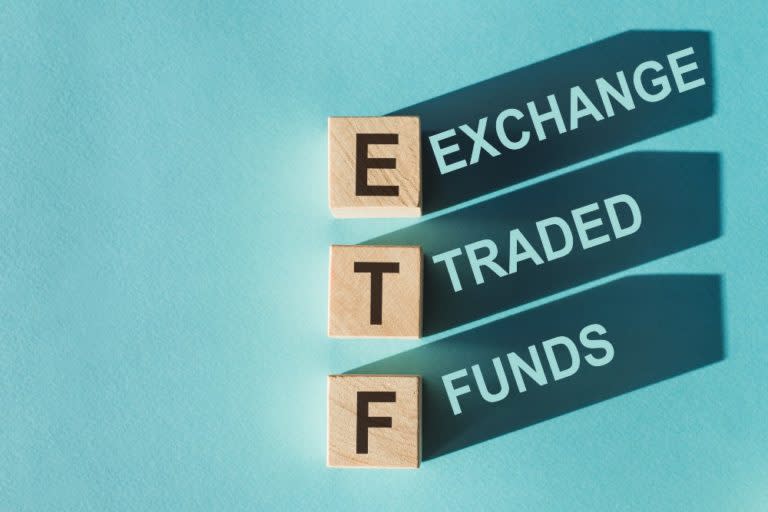3 High-Yield Canadian Dividend ETFs to Buy and Hold Forever

Written by Tony Dong at The Motley Fool Canada
A great strategy for beginner investors is dividend investing. Selecting blue-chip, large-cap dividend-paying Canadian equities can be a good way to start investing. The TSX is full of Canadian dividend stocks that have paid and increased yields for decades.
Dividends play a strong role in long-term investment growth thanks to the power of compounding. Reinvesting dividend payments consistently can help maximize your portfolio’s total return. Best of all, Canadian qualified dividends are taxed favourably at a lower rate.
However, there are a few downsides to dividend stocks. Most dividend stocks pay quarterly, which is not optimal for investors seeking monthly income. Selecting and managing a portfolio of 10-30 dividend stocks can also be time consuming and expensive.
An alternative, passive approach to buy dividend-paying stocks is via an exchange-traded fund (ETF). These funds hold a portfolio of high-quality Canadian dividend stocks selected by professional fund managers according to preset rules. Let’s look at my top picks today.
iShares S&P/TSX Composite High Dividend Index ETF
iShares S&P/TSX Composite High Dividend Index ETF (TSX:XEI) holds a portfolio of 76 large-cap Canadian stocks screened for above-average dividend yields. Most of XEI is in energy (32%) and financial (30%) stocks, with some utilities and telecoms.
A great feature of XEI is its monthly payment schedule, even though its underlying companies mostly payout on a quarterly basis. Currently, XEI has a trailing 12-month yield of 4.15%. This is the yield you would have received if you’d held XEI over the last year.
XEI costs a management expense ratio of 0.22%. This is the annual percentage fee deducted from your investment on a daily basis. For a $10,000 investment, a MER of 0.22% will cost you around $22 in annual fees. This can easily be cheaper than trading commissions for purchasing individual stocks.
BMO Canadian Dividend ETF
BMO Canadian Dividend ETF (TSX:ZDV) uses a rules-based screener to pick Canadian stocks based on their three-year dividend-growth rate, yield, payout ratio, and liquidity. The goal is to hold a portfolio of Canadian stocks with above-average dividend yields, while ensuring good quality and lower volatility.
ZDV currently pays an annualized distribution yield of 4.31%. This is the yield an investor may receive moving forward if the size of the ETFs most recent dividend remains consistent versus its current share price. Like XEI, ZDV also pays out its dividends monthly.
In terms of fees, ZDV is more expensive than XEI with a MER of 0.39%. For a $10,000 investment, a MER of 0.39% will cost you around $39 in annual fees. The higher fees are a result of ZDV’s active management approach, as it does not track an index.
Vanguard FTSE Canadian High Dividend Yield Index ETF
Finally, investors who like Vanguard’s philosophy of low fees can buy Vanguard FTSE Canadian High Dividend Yield Index ETF (TSX:VDY). The ETF is very similar to XEI in terms of strategy but is much more concentrated, with just 39 stocks held and 58% of them hailing from the financial sector.
Investors looking for greater exposure to Canadian banks and insurance companies might prefer VDY over XEI. It’s trailing 12-month yield is slightly lower at 3.99%, but keep in mind that this can be affected by share prices — as share price drops, yields soar, and vice-versa.
VDY charges a 0.22% MER — the same as XEI. Personally, I would buy equal amounts of each, re-balancing annually to receive the average of their performance. Then I would augment this core dividend ETF portfolio with a few select Canadian stock picks (and the Fool has some great recommendations).
The post 3 High-Yield Canadian Dividend ETFs to Buy and Hold Forever appeared first on The Motley Fool Canada.
Should You Invest $1,000 In Vanguard Ftse Canadian High Dividend Yield Index Etf?
Before you consider Vanguard Ftse Canadian High Dividend Yield Index Etf, you'll want to hear this.
Our market-beating analyst team just revealed what they believe are the 5 best stocks for investors to buy in September 2022 ... and Vanguard Ftse Canadian High Dividend Yield Index Etf wasn't on the list.
The online investing service they've run for nearly a decade, Motley Fool Stock Advisor Canada, is beating the TSX by 21 percentage points. And right now, they think there are 5 stocks that are better buys.
See the 5 Stocks * Returns as of 9/14/22
More reading
Fool contributor Tony Dong has no position in any of the stocks mentioned. The Motley Fool has no position in any of the stocks mentioned. The Motley Fool has a disclosure policy.
2022

 Yahoo Finance
Yahoo Finance 